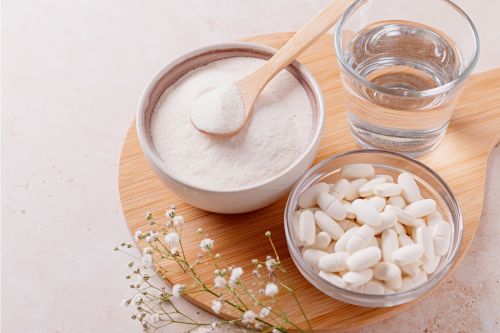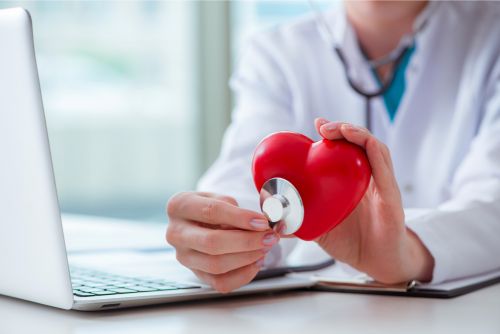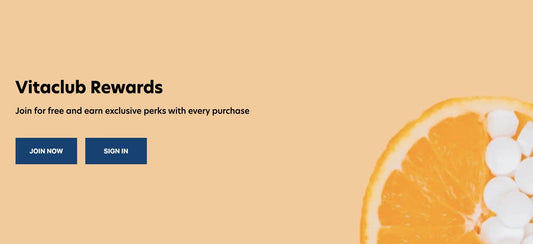3 Min Read
How Probiotics Help Both Gut and Brain Health

Our gastrointestinal (GI) tract runs from our oesophagus down to our large intestine. It is made up of trillions of microorganisms and bacteria, commonly known as the "microbiome".
These bacteria have many important roles in our bodies including:
- Breaking down food to extract vitamins and other nutrients that are absorbed and used for various functions in the body, like making neurotransmitters and hormones required by the brain
- The gut makes 90-95% of our serotonin (Happy hormone). In the gut, serotonin also modulates GI motility and intestinal secretions
- The gut holds 80% of our immune cells
- Bacteria in the gut builds and maintains the integrity of the gut wall, protecting it from outside pathogens that can leak into our bloodstream
There is a 2-way communication system between the gut microbiome and the brain through the vagus nerve. When we are stressed out blood flows away from our digestive system and into our extremities, muscles and heart in order to survive whatever threat we are currently facing. This impairs the breakdown of food, causing digestive distress. Repeatedly diverting blood flow away from the GI tract causes the gut wall to break down resulting in leaky gut.
As well, the poorly digested sugar from the carbohydrates can cause the bad bacteria to flourish taking over the good ones and ultimately, leading to an imbalanced microbiome. This can lead to digestive disorders, poor absorption of nutrients food allergies and inflammation. These changes in the microbiome can also influence neurotransmitter production and ultimately mood-related behaviors as well. According to Stats Canada, 1 in 4 people suffer from a mental health condition in Canada and seeing as how the link between the gut and the brain is huge, it is crucial to take care of our guts!
How do you know your microbiome is healthy? Here are some questions to ask yourself:
- Do you get 1-3 well-formed bowel movements a day that is easy to pass?
- Do you experience any gas, bloating, reflux, heartburn or noise?
- Do you experience any pain or cramping?
-
Do you suffer from any of the following signs of systemic inflammation:
- Allergies, asthma, muscle pain, autoimmune disease, fibromyalgia, metabolic disorders, anxiety, and depression?
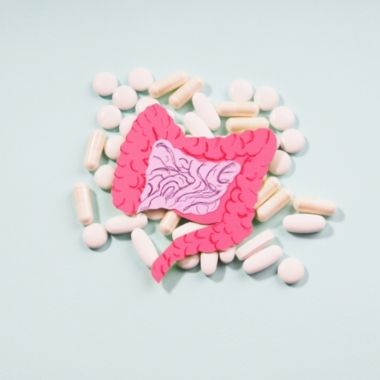
Your next question may be, what can you do to keep your gut happy, healthy and strong? The answer is:
- Take a good quality probiotic (Explained below)
- Eat more natural probiotics through fermented foods like fermented coconut, sauerkraut and Kombucha
- Eat clean! More whole foods, plant-based foods, fibre, nuts seeds and less sugar and processed foods
- Stress relief!
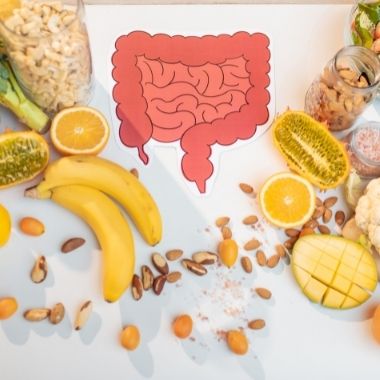
Probiotics are living anti-inflammatory microorganisms also known as “good bacteria”. In theory, by adding probiotics or the “good bacteria” it can help to treat some of the chronic illnesses mentioned above. Probiotics help to remove the “bad bacteria” from the gut by replenishing it with the good ones, mainly Lactobacillus and Bifidobacterium. Probiotics help to improve digestive function/regularity through weeding out the pathogenic bacteria and allowing the beneficial bacteria to thrive in the gastrointestinal tract.
Through increasing the good bacteria it can help make the vitamins and enzymes we need to ease digestion and displace gas-producing bacterial species. The gut is then able to make all the neurotransmitters it needs to support brain health! Probiotics are best absorbed when taken with food. An empty stomach has a pH between 1.8-2.6. This pH has potential to damage the good bacteria as a result of its acidity. Consumption of food increases the pH to 3.5-4.2 via dilution, thus keeping the good bacteria intact, allowing for a higher percentage of bacteria to be transported from the stomach to the small intestine, where probiotics are best absorbed. The dosage becomes irrelevant if the bacteria are dead prior to reaching the gut.
So the moral of the story is the brain and the gut to talk to each other! Several studies show evidence for reduced feelings of anxiety and depression after supplementing with probiotics, thus confirming the link between the digestive tract and the brain. A daily good quality probiotic can help to replenish your gut with the bacteria it needs to thrive so it can carry out its daily actions.
Written by: Dr. Saira Kassam, ND | 2018
